How to keep lawn mower gas from going bad
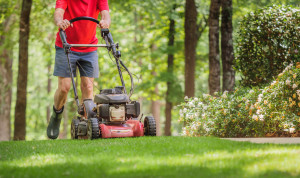

Stale gas in a lawn mower could cause the mower to sputter or hesitate, or keep the mower from starting. These simple tips explain how to ensure the gas remains fresh.
Looking for more lawn mower repair guides, tips and troubleshooting advice? Check out our specialized DIY repair help for walk-behind mowers and riding mowers.
Hi, Wayne here from Sears PartsDirect. Our video shows you a few quick tips for storing lawn mower gas. Your lawn mower might not run smoothly — or might not start at all — if the gas is stale or contaminated.
Use a plastic gas can, not a metal one, to store fuel. Rust inside a metal gas can will contaminate the fuel, and contaminated fuel makes the engine hard to start. If the mower does start, it may sputter and die.
Gas begins to get stale about 30 days after you pump it. Use a small gas can and buy less at a time. For a push lawn mower, a 2-gallon gas can should be big enough. For a riding mower, a 5-gallon gas can should be big enough.
If the gas is going to be around for a while, treat the can of gas with fuel stabilizer. Fuel stabilizer keeps gas from absorbing water and going bad. Follow the label directions and mix the correct amount of stabilizer to fuel ratio in a gas can. Never pour fuel stabilizer directly into the mower gas tank.
If you didn’t use a fuel stabilizer, don’t leave gas in the tank when you store it at the end of mowing season. Instead, use it up before you put it away.
Check out our DIY section for more repair tips and help.
Most common symptoms to help you fix your riding mowers & tractors
Choose a symptom to see related riding mower and lawn tractor repairs.
Main causes: faulty battery, bad alternator…
Main causes: damaged cutting blade, worn deck pulley, damaged mandrel pulley, loose fasteners on mower deck components…
Main causes: damaged tie rods, bent or worn wheel spindle, worn front axle, damaged sector gear assembly…
Main causes: worn or broken blade belt, broken belt idler pulley, blade clutch cable failure, bad PTO switch, damaged ma…
Main causes: punctured tire or inner tube, leaky valve stem, damaged wheel rim…
Main causes: engine overfilled with oil, leaky head gasket or sump gasket, damaged carburetor seals, cracked fuel pump, …
Main causes: clogged carburetor, damaged flywheel key, dirty spark plug, stale fuel, improper valve lash, engine needs a…
Main causes: shift lever needs adjustment, neutral control needs adjustment…
Main causes: worn or broken ground drive belt, bad seat switch, transaxle freewheel control engaged, transaxle failure, …
Most common repair guides to help fix your riding mowers & tractors
These step-by-step repair guides will help you safely fix what’s broken on your riding mower or lawn tractor.
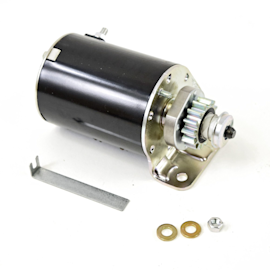
How to replace the starter motor on a riding lawn mower
If you hear the solenoid click but don’t hear the starter motor spin when you turn the key, follow these steps to replac…
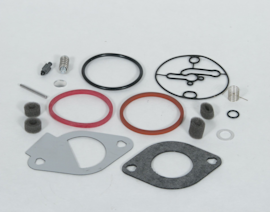
How to rebuild a riding lawn mower carburetor
Get your sputtering carburetor running smoothly in 60 minutes.…
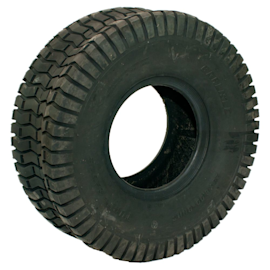
How to replace a riding lawn mower rear tire
Your mower can’t run on a damaged rear tire. Here’s how to install a new one.…
Effective articles & videos to help repair your riding mowers & tractors
Use the advice and tips in these articles and videos to get the most out of your riding mower or lawn tractor.

Learn about all the convenient features on our Sears PartsDirect website that make your parts purchases easier.…
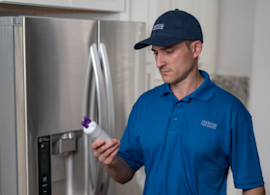
Get answers to frequently asked questions about Sears and Sears PartsDirect.…
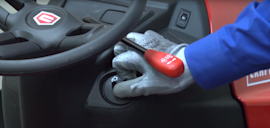
Check the starter solenoid, starter motor, wiring, battery and engine.…